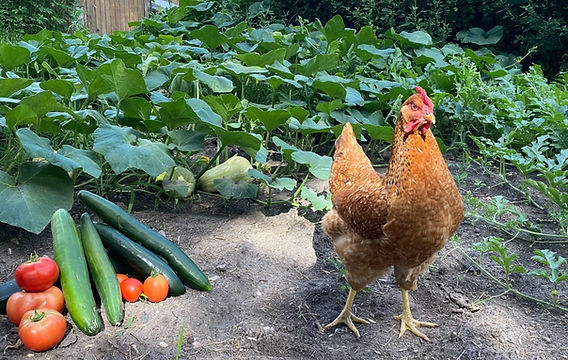Introduction
If you’ve noticed your vegetable garden looking a bit worse for wear, you might be wondering, “Do chickens eat vegetable gardens?” Chickens are known for their curious nature and scratching habits, which can sometimes lead to garden damage. Understanding how chickens interact with vegetable gardens is crucial for any gardener or backyard poultry keeper. This article explores whether chickens eat your vegetables, the potential risks they pose, and practical strategies to protect your garden.
Do Chickens Eat Vegetables from the Garden?
What Do Chickens Typically Eat?
Chickens are omnivores and have a varied diet that includes insects, seeds, grains, and plants. They naturally forage for food and will peck at a wide range of items in their environment.
Do They Eat Garden Vegetables?
Yes, chickens can and do eat many types of vegetables directly from the garden. They particularly enjoy leafy greens like lettuce, spinach, and kale, as well as fruits such as tomatoes and strawberries. This behavior can lead to significant damage if not managed properly.
Key Points:
– Chickens scratch soil looking for insects but can uproot plants.
– They peck at soft vegetable leaves and fruits.
– Some vegetables are more attractive to chickens than others.
How Chickens Can Damage Your Vegetable Garden
Physical Damage Through Scratching
Chickens use their feet to scratch the ground to uncover food. This natural behavior can disturb soil structure, uproot seedlings, and damage root systems of young vegetables.
Consumption of Plants
Beyond scratching, chickens directly consume vegetables. Eating leaves, stems, and fruits reduces your garden yield.
Examples of Vulnerable Plants
- Leafy greens (lettuce, chard, spinach)
- Root vegetables in early growth stages
- Soft fruits (tomatoes, peas, beans)
Expert Insight
According to agricultural extension services, uncontrolled chicken access to gardens can reduce vegetable yields by up to 30%, especially in small-scale home gardens.
Strategies to Protect Your Vegetable Garden from Chickens
Physical Barriers
- Fencing: Use chicken wire or hardware cloth around garden beds to prevent entry.
- Netting: Cover fruiting plants with bird netting to protect from pecking.
Garden Design
- Raised Beds: Elevate your garden beds to limit chicken access.
- Separate Areas: Allocate a designated chicken run away from vegetable patches.
Behavioral Management
- Supervised Free-Range: Allow chickens to free-range only when supervised.
- Provide Alternative Food: Supplement chickens’ diets with balanced feed to reduce foraging pressure.
Natural Deterrents
- Plant herbs like rosemary or lavender around garden edges, which chickens tend to avoid.
Benefits of Chickens in a Garden Setting
While chickens can be a threat to vegetable gardens, they also offer benefits:
- Pest Control: Chickens eat harmful insects and larvae.
- Soil Fertilization: Their droppings enrich the soil with nutrients.
- Waste Reduction: Chickens consume garden scraps, reducing waste.
Balancing these benefits with the potential risks requires thoughtful garden planning.
Conclusion
Chickens do eat plants in vegetable gardens, especially tender leaves and fruits, and their scratching behavior can cause physical damage. However, with proper management techniques such as fencing, garden design, and supervised free-ranging, you can protect your crops while enjoying the benefits chickens bring. Understanding your chickens’ behaviors and needs is key to fostering a harmonious garden environment. Consider implementing the strategies discussed to safeguard your vegetable garden and maintain a productive, healthy growing space.
